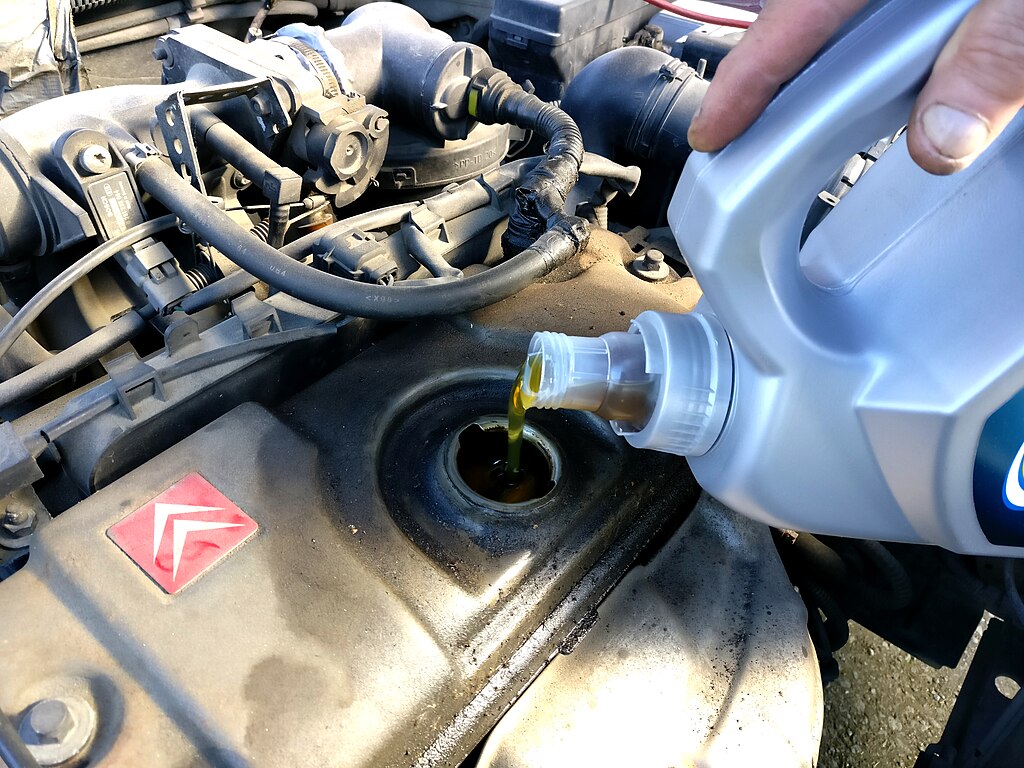How Long Can Engine Oil Sit Before It Goes Bad?
If oil stays too long, it begins to break down and loses its ability to protect the engine. Various factors like storage conditions, the type of oil and how often you drive affect the longevity effectiveness of oil.

Even if you don’t drive the vehicle, the oil inside can degrade over time.
Oil can generally sit in your engine for about 6 to 12 months. After that, its effectiveness drops, increasing the risk of engine wear and buildup.
Regular checks and timely oil changes are the best way to avoid issues that arise from oil sitting too long.
Does engine oil go bad sitting in the engine?
Engine oil can degrade over time, even if the vehicle isn’t driven frequently. When oil sits in the engine for extended periods, it can undergo chemical changes due to exposure to air, moisture, and contaminants.
For example, if you leave a car parked for several months without driving it, the oil inside the engine can start to break down. Even if the mileage is low, the oil’s ability to lubricate and protect the engine decreases. To avoid potential engine damage, it’s recommended to change the oil periodically, regardless of how often you drive.
Here’s a list of factors that can cause engine oil to degrade while sitting:
Temperature fluctuations: Changes in temperature can cause condensation, leading to moisture in the oil.
Oxidation: Oil reacts with oxygen, leading to thickening and reduced effectiveness.
Moisture accumulation: Water can enter the engine, mixing with oil and forming sludge.
Contaminant build-up: Dust, dirt, and debris can settle in the oil, reducing its quality.
Additive depletion: The protective additives in the oil can break down over time, reducing its ability to protect the engine.
Factors that determine the longevity of oil in engines
1. Type of Oil Used
The type of oil used in an engine plays a vast role in oil’s self life. Synthetic oil tends to last longer than conventional oil due to its enhanced stability and resistance to breakdown. Conventional oil may degrade faster, leading to reduced effectiveness over time.
2. Driving Habits and Frequency
Even fresh oil can start to break down, if your car isn’t used for a long period. Short trips can cause more wear on the oil compared to highway driving. Infrequent use allows contaminants like moisture and fuel to mix with the oil, leading to quicker degradation.
3. Climate and Storage Conditions
Oil degrades faster in extreme temperatures. High heat accelerates oxidation, while cold weather can cause condensation, which mixes with the oil. Parking your vehicle in a garage with room temperature and low humidity helps preserve the oil’s quality.
Signs That Oil Has Been Sitting Too Long
1. Dark and Thick Oil
Fresh oil is usually clear and amber in colour. When it sits too long, it gathers dirt and turns dark and thick.
You can check by pulling out the dipstick—if the oil looks very dark or feels rough, it’s no longer good. Even if you haven’t driven much, oil can still age and lose its effectiveness.
2. Loud Engine Sounds
Old oil will lose its smoothness and cause engine parts to collide against each other leading to louder engine noises like knocking or ticking.
If your engine sounds different than usual, then the oil might be too old and unable to protect the parts properly.
3. Burnt Oil Smell
When oil breaks down, it can start to overheat and produce a burnt smell. If you notice an absurd odour inside the car, it shows that the oil is no longer effective.
If you smell burnt oil, you must change it to avoid damage to your engine.
How long can oil sit in an engine?
Engine oil can generally sit in an engine for about six months to a year before it starts to lose its effectiveness. Even if your car is not driven often, the oil can still degrade due to factors like exposure to air, moisture, and temperature changes. Over time, these factors cause the oil to oxidize and break down, reducing its ability to properly lubricate and protect the engine.
For example, moisture can enter the engine, mixing with the oil and leading to the formation of sludge, which can clog vital engine parts.
If you let oil sit in the engine for too long without changing it, you risk engine damage even if you don’t drive the car much.
FAQ
1. How long can unused oil stay in an engine?
Unused oil can stay in an engine for about 6 to 12 months. It begins to lose its effectiveness and cause sludge formation and thereby reduce engine protection. Even if the car is not used , oil can still degrade over time.
2.When Should You Change Oil if a Vehicle Isn’t Used Often?
Regularly check your oil levels and quality to determine if it’s still in good condition.If you find some change in the oil, it is suggested to change the oil every 6-12 months. Oil can degrade over time, even without driving.
3. Does oil go bad if the car isn’t driven?
Yes, oil can go bad even if the car isn’t driven. Factors like moisture, temperature changes and contaminants can affect oil quality and efficiency. Regularly change oil every 6 to 12 months as recommended.
4. How can I tell if the oil has been sitting too long?
You can check the oil’s appearance and texture using the dipstick. If the oil looks dark, gritty or thicker than normal, it should be changed. Also, if the engine sounds louder or you notice a burnt smell, the oil is no longer good.
5. Should I change oil before storing my car long-term?
Yes, it’s a good idea to change the oil before storing your vehicle. Fresh oil helps prevent engine corrosion and sludge buildup during long storage periods. It also ensures that the engine is ready to run smoothly when you need to use it again.

My name is Ari, and I’m the owner and copywriter at Tailored Niche and Nichesites.online. I specialize in creating high-quality, niche-focused content that helps businesses stand out online.
I deliver content that connects with your audience and gets real results.




